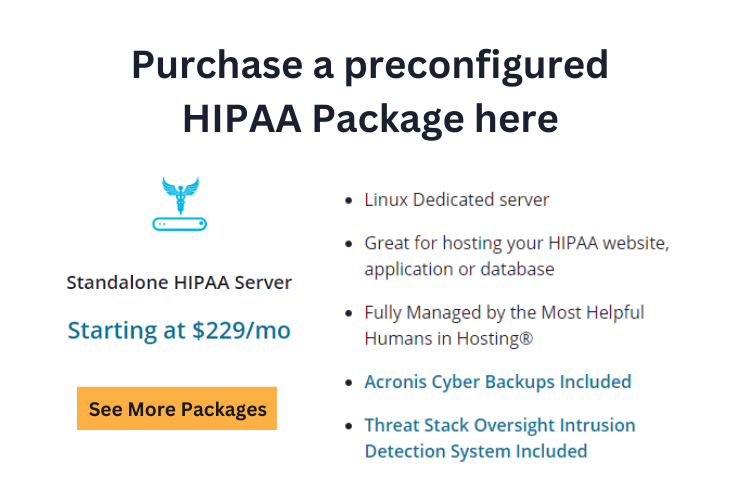Do gyms have to be HIPAA compliant?
We work with a lot of gyms, med-spas and healthcare-adjacent service providers. Today we’ll discuss some specific risks gyms and gym-owners have to contend with as they collect customer, and potentially protected health information (PHI).
But “wait” you say. We certainly do not ask for, collect or store this information?
Odds are you do. Read on.
Why it is important for gyms and gym owners to have HIPAA-compliant website, forms and practices.
Creating a HIPAA-compliant website is crucial for any business in the health sector, including gyms and fitness centers that collect, store, or transmit any form of Protected Health Information (PHI). You could inadvertently become a covered entity (CA) based on what data you collect, how you store it and for how long. The Health Insurance Portability and Accountability Act (HIPAA) sets the standard for protecting sensitive patient data in the United States. Any company that deals with PHI must ensure that all required physical, network, and process security measures are in place and followed. This article explores the essential considerations and steps for gyms to make their websites HIPAA compliant.
Understanding HIPAA Compliance for Gyms
HIPAA compliance is typically associated with healthcare providers, insurance companies, and healthcare clearinghouses. However, gyms and fitness centers often collect health-related information from their clients, such as health histories, fitness assessments, and even biometric data, which could bring them within the ambit of HIPAA, especially if they share this information with healthcare providers or use it for health monitoring and management.
Some questions to ask yourself:
- Do customers first contact you through your website? Do they disclose various health conditions or concerns? If you are storing this information in some employee’s email account or in the backend of your website you are responsible for taking care and safeguarding that data. If you keep such data beyond a reasonable time to process, secure and store the information you could have a HIPAA violation and not even know it.
- Do you allow your trainers or other staff to discuss medical conditions over insecure email channels? Are you disposing of these communications?
- Are you training your staff on how to recognize PHI and what to do with it? (using independent contractors doesn’t absolve you of this responsibility)
You may not be a doctor or healthcare practioner, but as a business you are ALWAYS responsible for any data you collect, hold or distribute.
Key Considerations for HIPAA Compliant Websites
- Secure Data Transmission: All data transmission over the internet, including emails, forms, and file transfers, must be encrypted using SSL (Secure Sockets Layer) or TLS (Transport Layer Security). This ensures that data cannot be easily intercepted during transmission. This alone is not enough as it only encrypts the data while it is moving.
- Data Encryption: Data stored on servers, including backups, should be encrypted. Encryption converts information into a code to prevent unauthorized access, making it a critical component of HIPAA compliance. This limits the damage that could be done in the case or a breach or loss of data.
- Access Controls: Implement strict access controls to ensure only authorized personnel can access PHI. This includes unique user IDs, strong passwords, and automatic logoff to prevent unauthorized access to data. For gyms this also means not sharing email accounts and always revoking access after a contractor or employee leaves.
- Audit Controls: Implement mechanisms to record and examine access and activity in information systems containing PHI. This helps in tracking how PHI is used and can provide evidence in the event of a compliance audit. Who looked at what, when, etc.
- Data Backup and Recovery: Establish and implement procedures to create and maintain retrievable exact copies of PHI. This ensures data integrity and availability in the event of an emergency or data loss. If you are storing PHI long-term, you must implement controls and backups of your data.
- Breach Notification: Comply with HIPAA’s breach notification rule, which requires entities to notify affected individuals, the Secretary of HHS, and in some cases, the media, of a breach of unsecured PHI.
- Privacy Policy and Terms of Use: Clearly outline how you collect, use, and protect health information on your website. Ensure your privacy policy is easily accessible and complies with HIPAA regulations.
- Business Associate Agreement (BAA): If you use third-party services (e.g., hosting providers, email services) that may have access to PHI, ensure you have a BAA in place. This contract between you and your vendors ensures they adhere to HIPAA requirements. In short, if you are sharing PHI with other sources, you need a BAA agreement with them.
Implementing HIPAA Compliance
Implementing HIPAA compliance is an ongoing process. It begins with a thorough risk assessment to identify potential vulnerabilities in your website and data handling practices. Following this, you should:
- Train your staff on HIPAA rules and the importance of protecting PHI.
- Regularly update your website and security protocols to address new threats.
- Engage in continuous monitoring and auditing to ensure compliance and identify areas for improvement.
- You should make sure you are using best practices for encryption, storage and retention of data.
- Get rid of data you do not need. We work with a lot of gyms who have 5-10 years of customer data with a lot of medical-related declarations and information.
So, how do we fix this?
For gyms and fitness centers, navigating the complexities of HIPAA compliance can be challenging, especially when creating or maintaining a website. However, given the increasing focus on digital health and the potential for gyms to handle PHI, it’s a necessary consideration. By understanding and implementing the core requirements of HIPAA compliance, gyms can not only protect their clients’ health information but also build trust and demonstrate their commitment to privacy and security. Collaboration with legal experts and cybersecurity professionals is often advisable to ensure comprehensive compliance and safeguard against potential legal and financial penalties.
If you would like a consult on how we can help protect you from this risk, please contact us using the form below.









